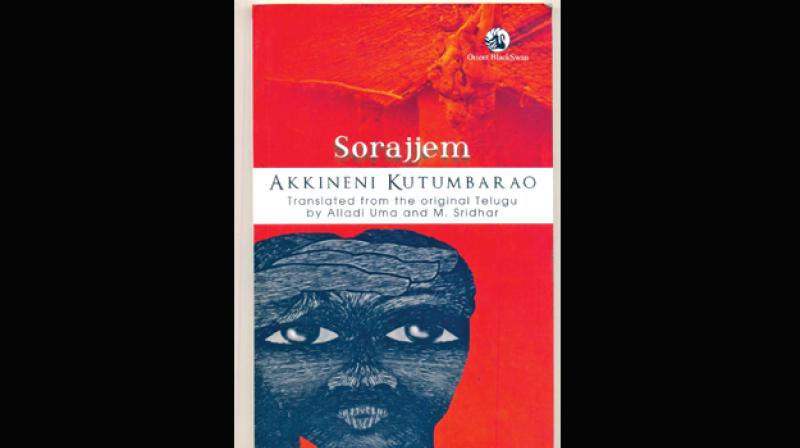Book review: Fine ethnography of Andhra village in throes of socio-political change
Translated from the original Telugu by Alladi Uma and M. Sridhar.

Chennai: Why toil in the fields if you can ‘live by politicking’? What will you learn at school if the only thing beautiful about a teacher by that name (Sundarrao in this instance) will throw the Dalit girl’s slate to the ground just because “she had not written ‘ksha’ properly”?
What does it mean when a village temple on its margins – a separate temple for ‘Malas’ and ‘Madigas’ (two Dalit sub-sects) in an ‘untouchable corner’ - turns into a place for youths “to think about injustice that were taking place” after finishing their daily work at their Doras’ (respective landlords) house?
There is the counterpoint as well: “But what does a man who does agriculture get today? Nothing. “I will increase your wage, but there is nothing as useless as agriculture,” is an ostensibly well-meaning upper caste farmer’s poser. He claims to empathise with the poor daily workers’ need for raising wages, but says other poor peasants and farmers in the village will not allow him to do that.
The Dalits are not the only ‘coolies (daily-wage workers)’ in the village. “There were Salis, Kummaris (potters), Kunkapus (a particular caste who sell kumkum, different kinds of beads, safety pins etc.) among them. …. People of other castes too come for sowing, reaping and gathering in the recent past. There were poor farmers too (among the upper castes).” “Almost every family had loans to repay, handed down generations…. So, though a farmer in name, he had no choice but to go for coolie work.”
If these descriptions about Malapalli, a remote village in Andhra Pradesh, written in the year of Indian Independence (1947) rings a familiar bell even today, ‘India at 70’ as historians would say, Akkineni Kutumbarao, the author of this moving novel titled ‘Sorajjem’, can hardly be blamed. His foresight may not be a self-fulfilling prophecy, but a mirror to the painful, often cosmetic texture of socio-political changes.
If plain realism can be riveting, then Akkineni Kutumbarao’s novel, originally written in Telugu in 1973 about the first 16 years in the life of a Dalit girl, Sorajjem, born in August 1947, by a non-Dalit writer and translated into English recently by Alladi Uma and M Sridhar, has chronicled an amazing ethnography of the socio-politics of rural India.
The dialectics of love and hate, of master and slave, local power equations in an oppressive social setting where Dalits are at the receiving end, have all been evocatively woven around the early life of this hapless girl Sorajjem in this village.
The helplessness with which the protagonist takes personal tragedies in losing her near and dear ones-, at times in ugly and violent situations after agriculture labour seek an increase in their daily wages - and the gender vulnerability of Dalit and other lower caste women as potential objects of sexual exploitation, also brings out the inner beauty of long-suffering souls.
That human life’s silhouettes are a play of light and darkness, of the combination of the animal instincts in man clothed in custom and caste, have been spread out by the author on a canvas of objective phenomenology as it were.
The style is reminiscent a school of philosophical thought in the West which in the wake of World War-II just jotted down matter of facts, ‘bracketing’ value stances to the best extent possible. .
Values intermingle with facts so subtly in Akkineni Kutumbarao’s pen; so much so at the end when Sorajjem and others have to move to another village for work — a man from Nellore comes to Malapalli to take 40 daily workers for his fields — it only leaves the reader with a sense of the grand, universal continuum of life. “Samsara is Nirvana and Nirvana is Samsara,” as the great Buddhist philosopher Nagarjuna would say.
There seems even an anticipation of what may be termed a ‘Mrinal Sen touch’ at that exit point, when the villagers who decide to leave, prostrate towards the village and say, “Don’t know when we will come back.”
The English translation of the novel by Alladi Uma and M. Sridhar, both who have taught English at the University of Hyderabad, has kept close to the linguistic and cultural sensitivities of the original in Telugu, considerably enriching the novel’s authenticity.

